If you've found yourself dealing with the complexities of a defamation case, you're not alone. Navigating through legal jargon and emotional turmoil can be overwhelming, especially when you're trying to clear your name. This article aims to provide you with a step-by-step guide on how to effectively draft a letter for your defamation case, ensuring that you articulate your concerns clearly and assertively. Ready to learn how to protect your reputation? Let's dive in!
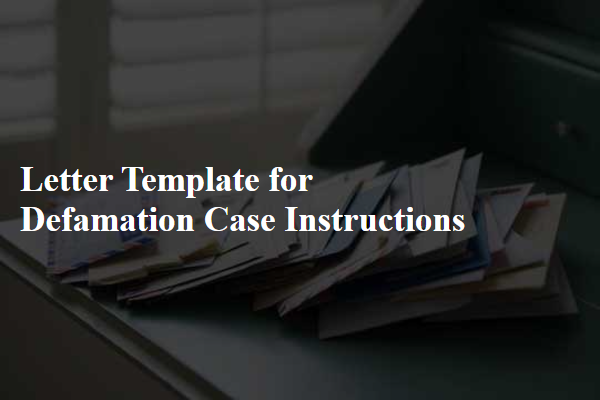
Clear identification of defamatory statements
Defamation cases often hinge on the clear identification of defamatory statements, which typically involve false claims that harm an individual's reputation. In this context, a statement may be deemed defamatory if it is published to third parties, causes injury to someone's reputation, expresses malice, or is presented as a fact rather than opinion. Identifying these statements requires careful documentation, including the exact wording and context in which they were made. Additionally, noting specific instances where the statements were disseminated, such as social media platforms like Facebook or Twitter, and the dates of publication strengthens the case. It is crucial to demonstrate how the identified statements have led to tangible damages, like lost employment opportunities or emotional distress, to support the defamation claim effectively.
Evidence and documentation supporting claims
In a defamation case, gathering comprehensive evidence and documentation to support claims is crucial for establishing the validity of allegations. Witness statements play a pivotal role, as testimonies from individuals who observed the defamatory statements or actions can substantiate claims. Additionally, collating written communication, such as emails, text messages, or social media posts, is essential to capture the context and content of the defamatory remarks. Public records, including news articles or official notices that reference the defamatory statements, can enhance the case. Furthermore, documentation of damages, such as medical records illustrating emotional distress or financial records showing loss of income, is vital to demonstrate the negative impact of defamation. Legal notices or cease-and-desist letters sent to the defamer can also serve as evidence of attempts to resolve the issue prior to pursuing legal action.
Explanation of legal grounds for defamation
Defamation involves false statements that harm an individual's reputation, encompassing both slander (spoken) and libel (written). Legal grounds for defamation require establishing four critical elements: a false statement of fact, publication of that statement to a third party, fault amounting to at least negligence, and damages resulting from the statement. The statement must be presented as a fact, not opinion, to sustain a defamation claim. Jurisdictions vary in their standards, with public figures facing a higher burden of proof, often needing to demonstrate actual malice--knowing falsity or reckless disregard for the truth. Additionally, defenses such as truth, opinion, and privilege can mitigate liability, emphasizing the importance of context in defamation cases.
Requested actions or remedies
Defamation cases often necessitate specific actions to address the harm caused by false statements. One critical remedy involves the issuance of a public retraction or apology from the party that made the defamatory statements. This action seeks to restore the reputation of the harmed individual or entity, as seen in cases that arise from social media platforms or news articles. Financial compensation may also be requested to cover damages, including lost income and emotional distress, often calculated based on the severity of the defamatory remarks and their impact. Documentation of the statements in question, including dates, publications, or social media posts, is vital for legal proceedings. Gathering evidence, such as witness testimonies or expert opinions on damage to reputation, can further strengthen the case. Seeking legal advice from a defamation attorney experienced in similar cases will ensure that all necessary steps are taken effectively.
Deadlines for response or compliance
In a defamation case, strict adherence to deadlines for response or compliance is crucial. Typically, the defendant must respond to the complaint within 21 days, depending on the jurisdiction, after being served with the court documents. Every jurisdiction may have specific rules governing the timeline for filing motions, like a motion to dismiss, and such motions often must be submitted before the deadline for the answer to the complaint. Additionally, discovery phases may have set deadlines; for instance, the completion of interrogatories and document exchanges may be required within a 30-day timeframe. It is imperative to track these deadlines meticulously to ensure all responses are filed timely, preventing automatic penalties or default judgments. Key documents include the complaint, answer, and any counterclaims, all of which must be submitted to the appropriate court.

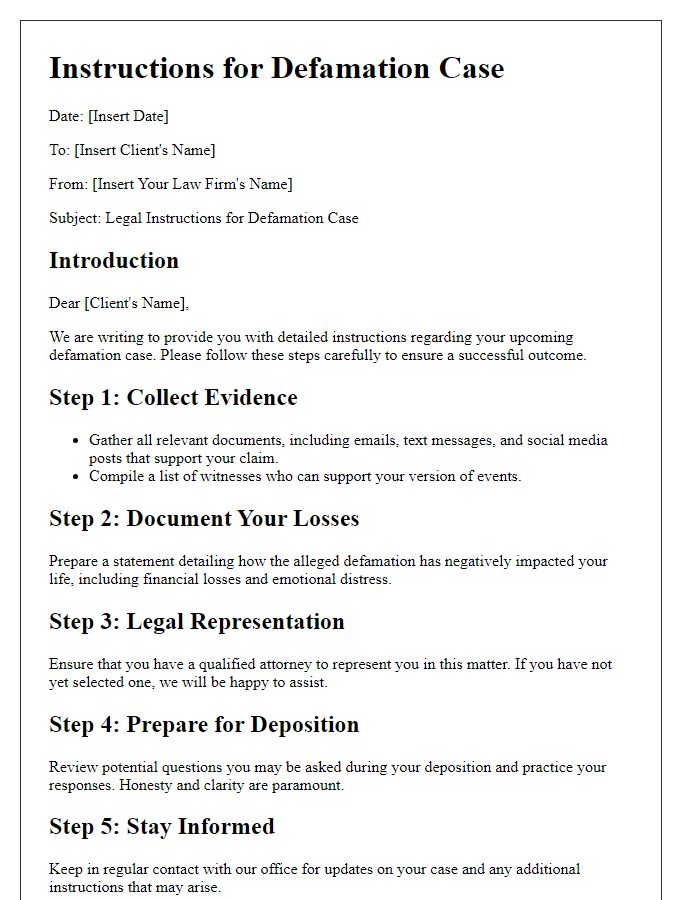
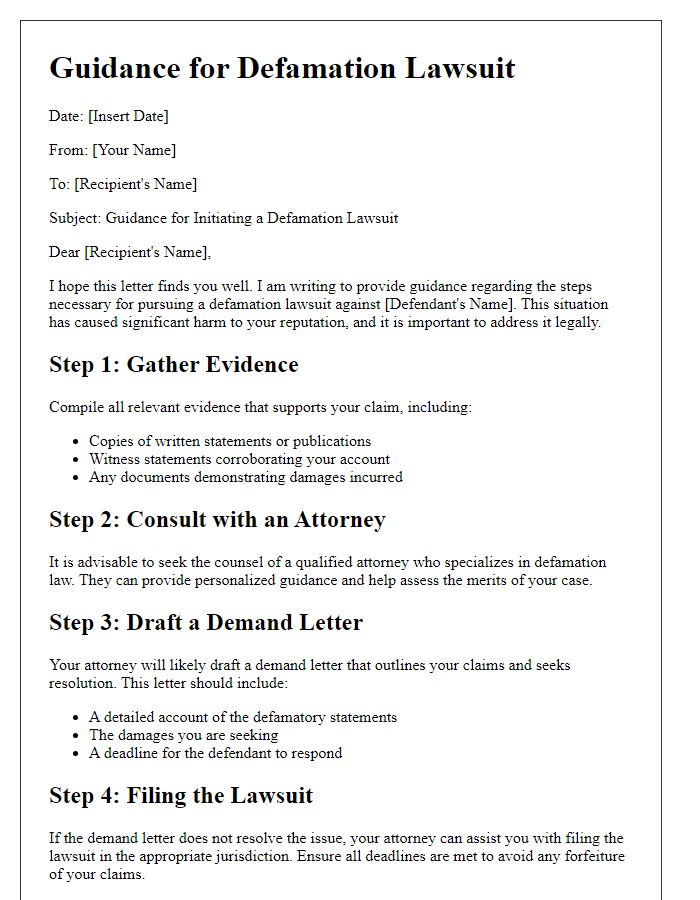
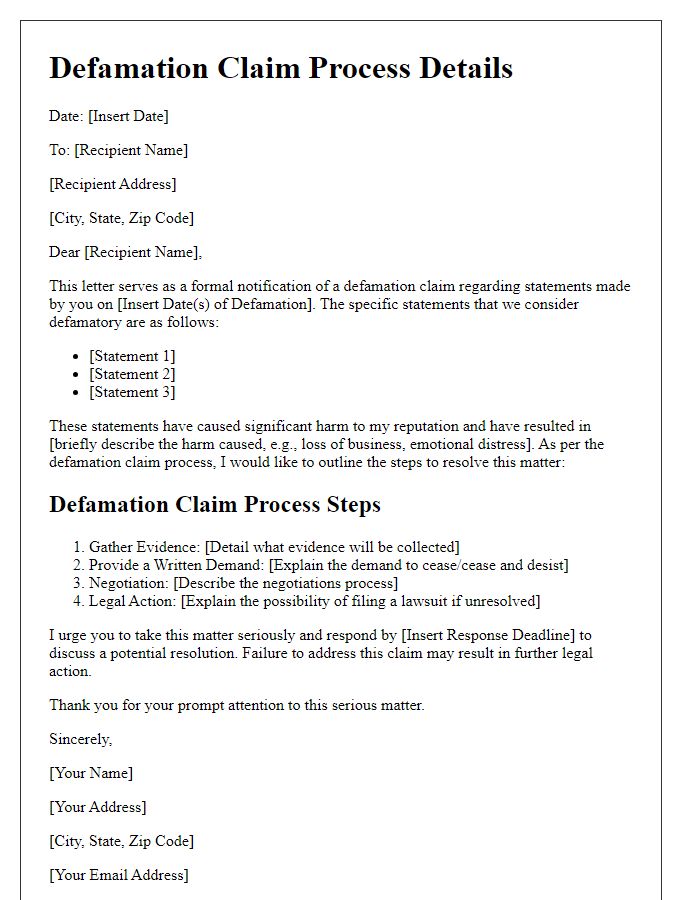
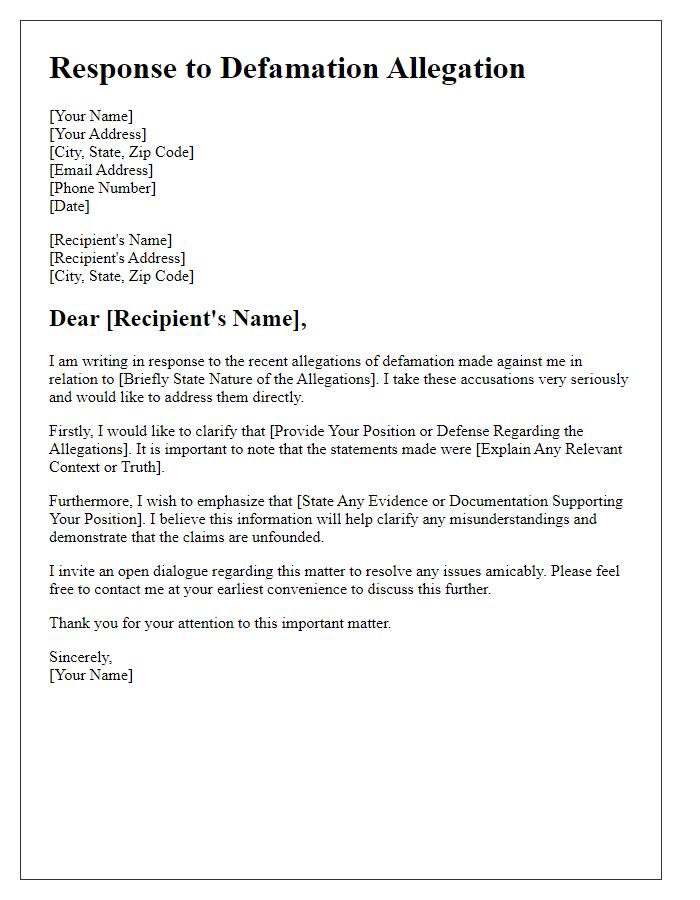
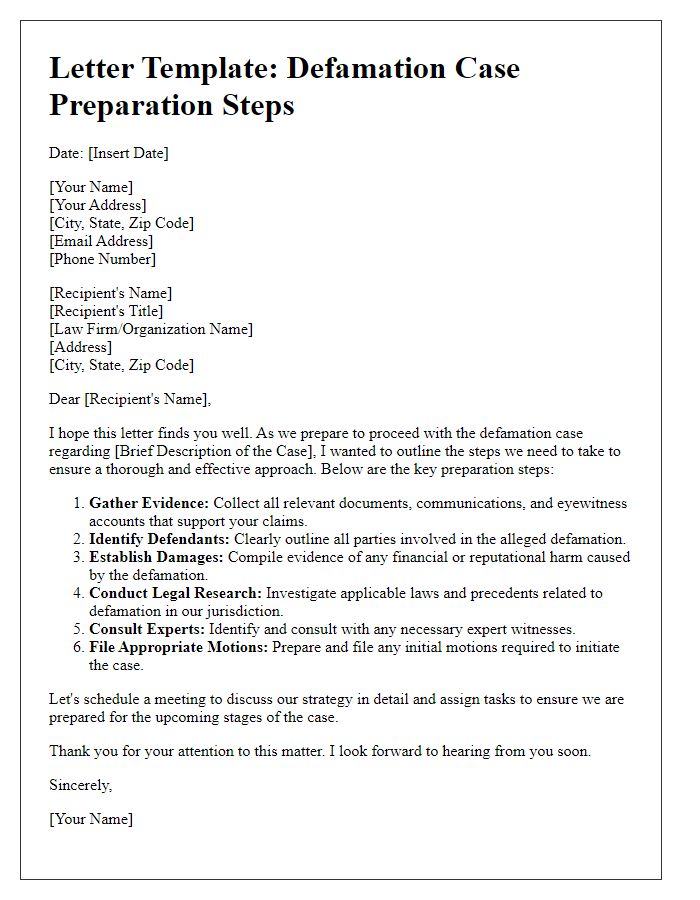
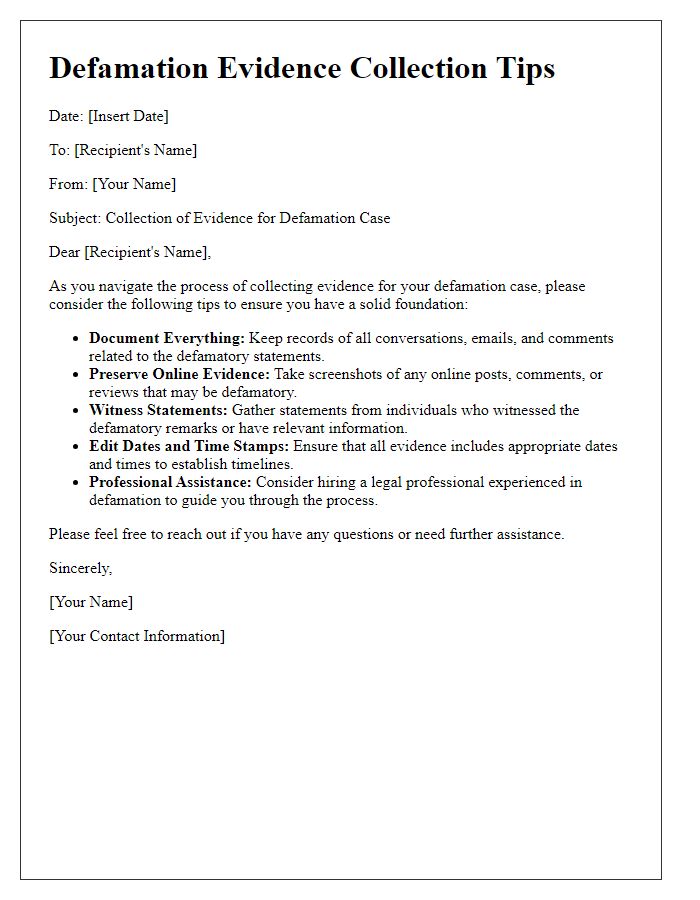
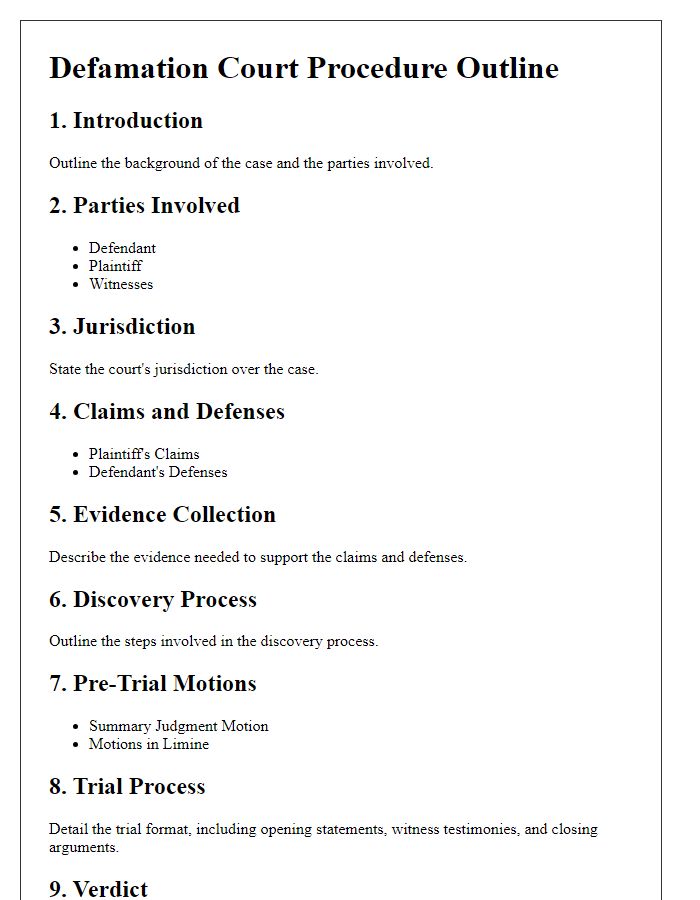
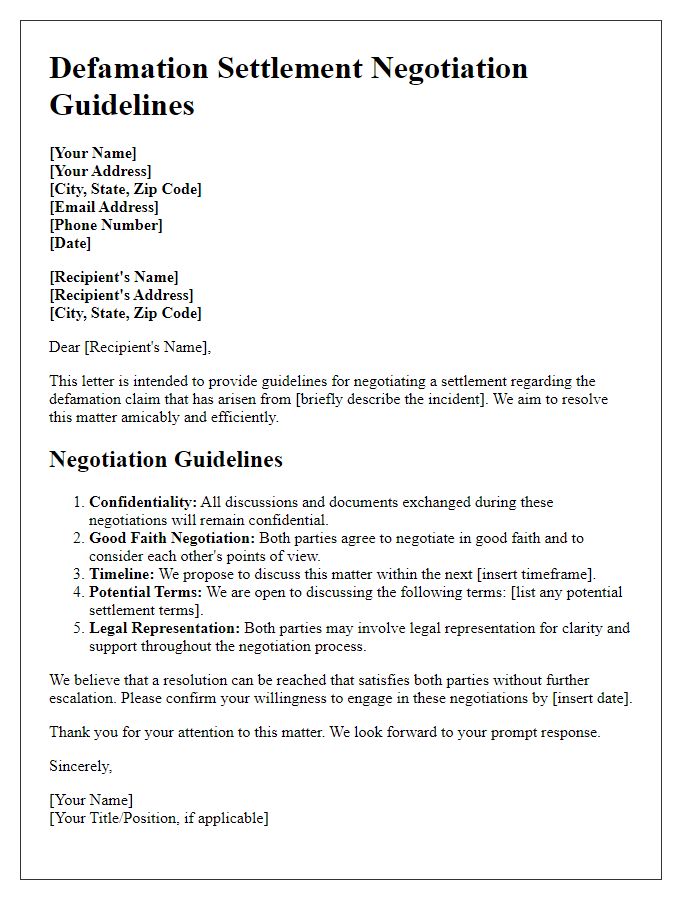
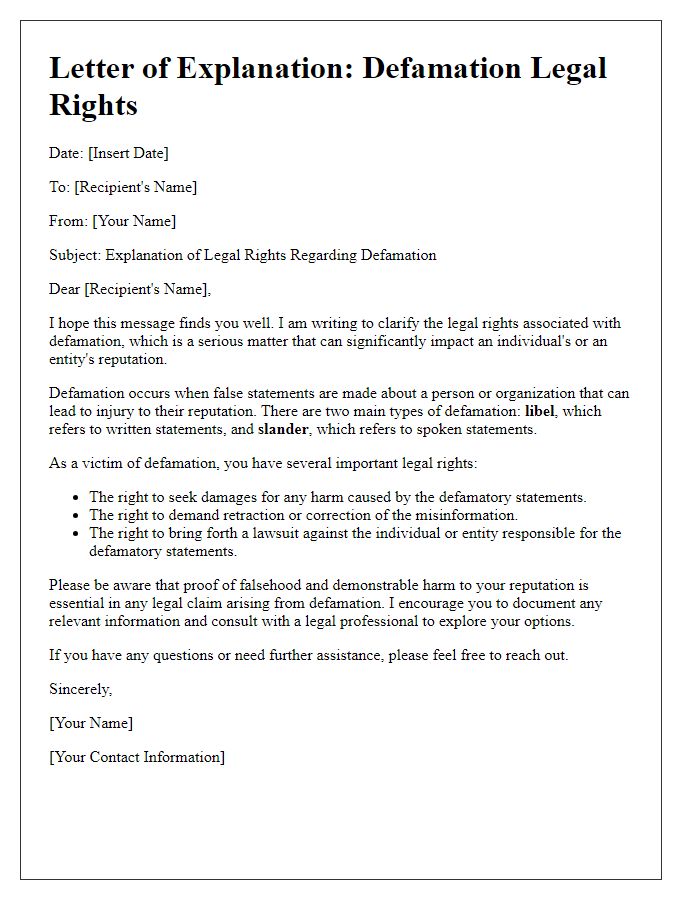
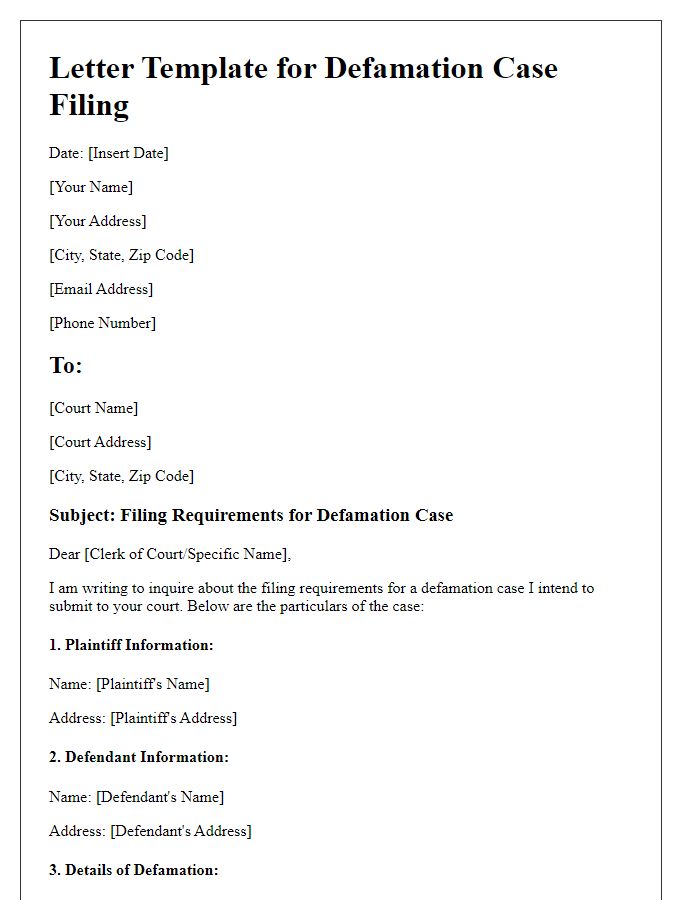


Comments